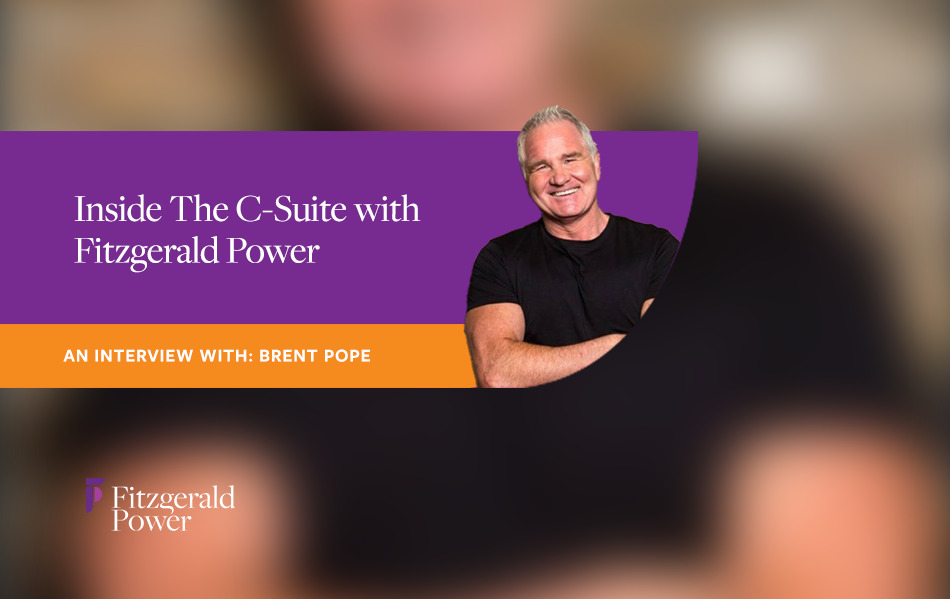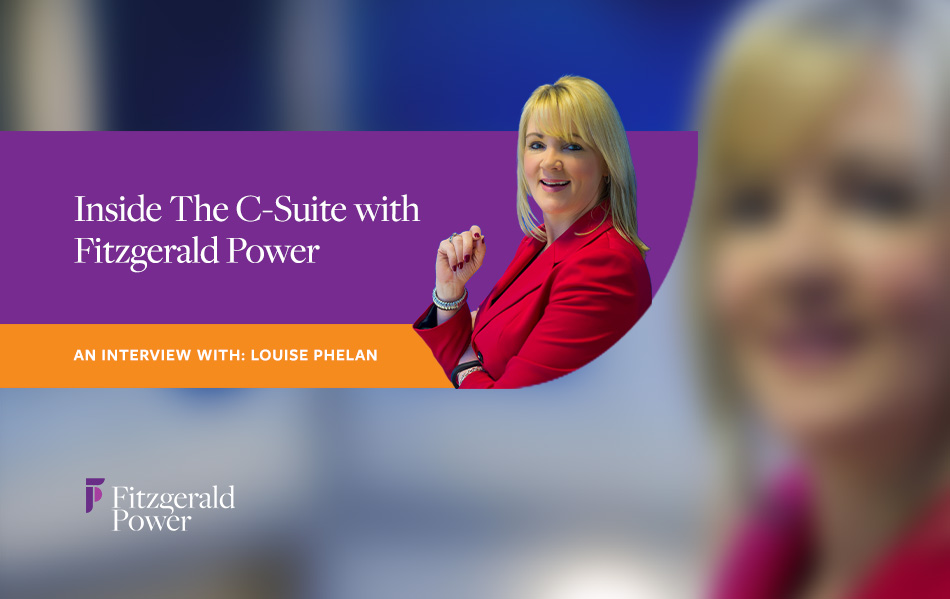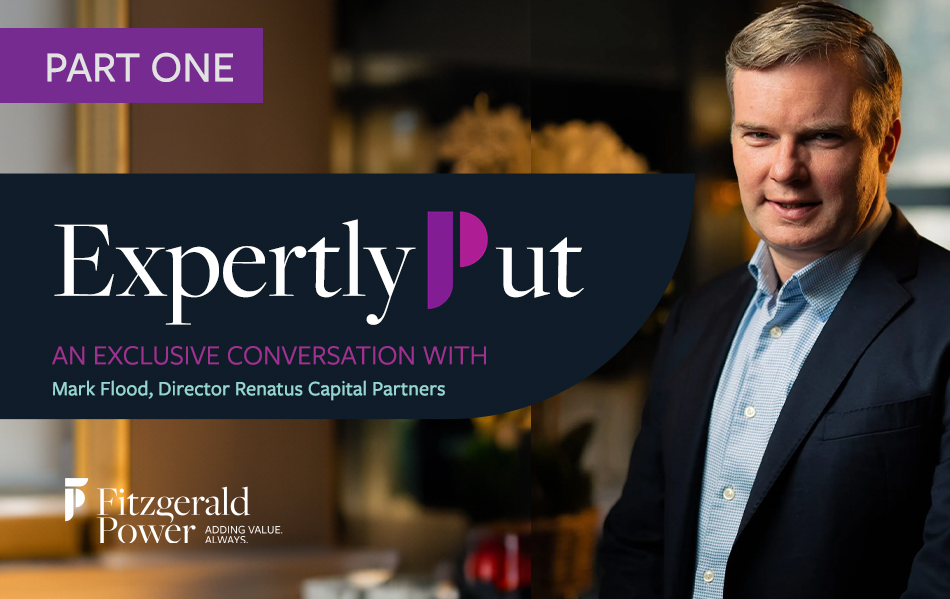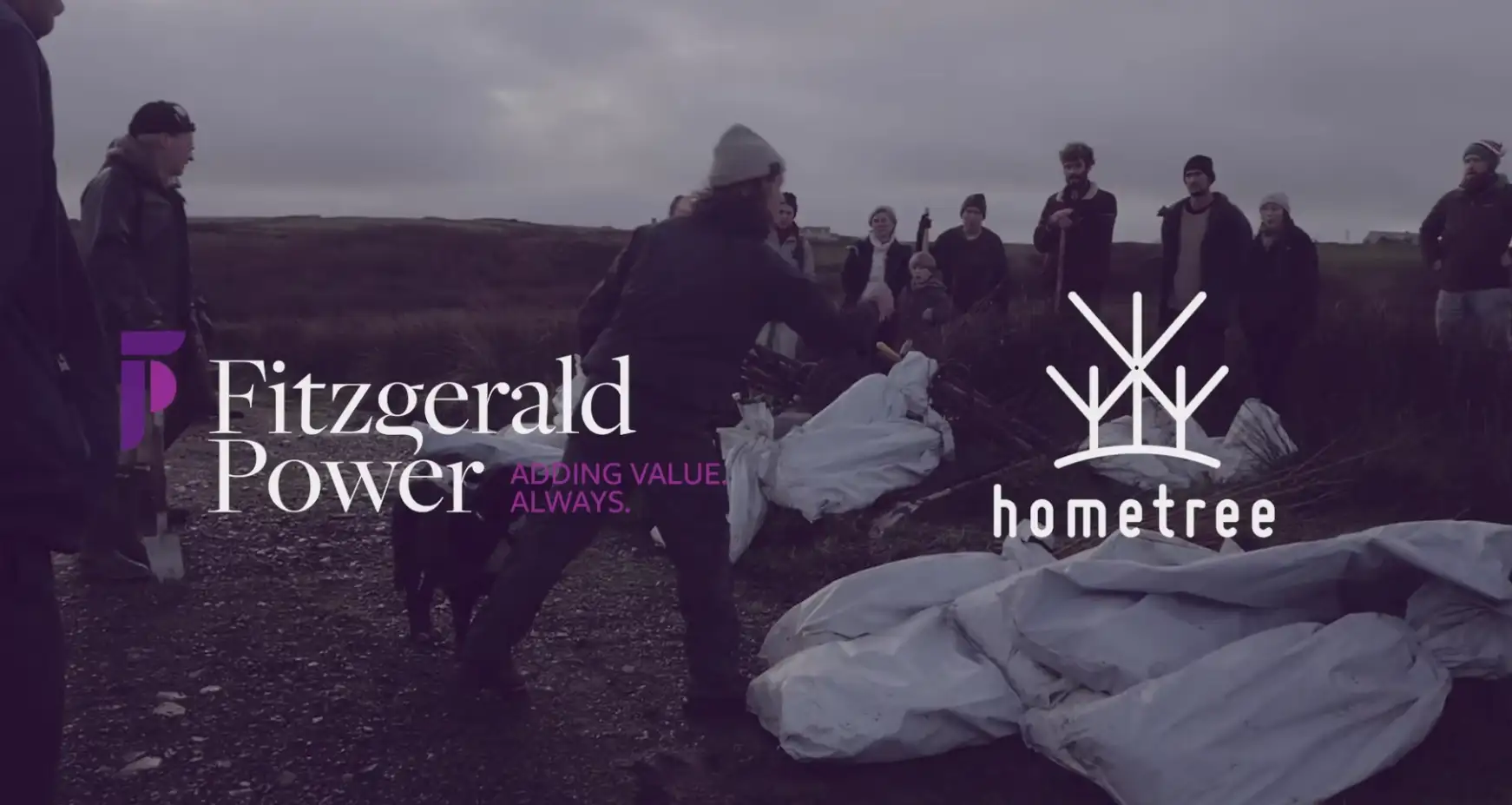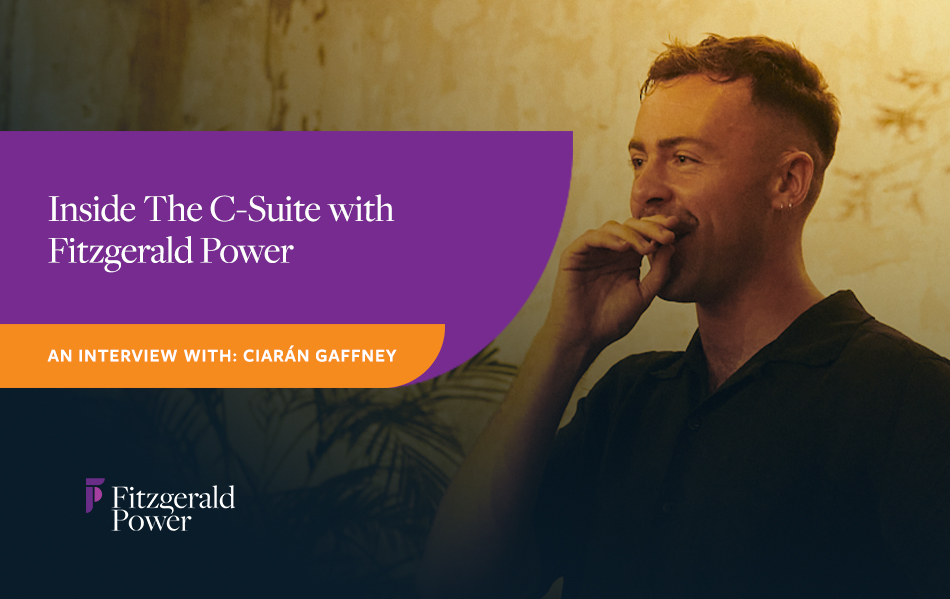“Gyms and beanbags in the office are great, but we need to do more.”
In Fitzgerald Power’s new interview series, we’re speaking to people with different perspectives who feel they can offer more to the workplace, from the water cooler all the way up to the C-Suite.
It’s a new era for mental health in the workplace – a quick internet search will tell you that. But the concept of being too mentally unwell to work has been around since the dawn of time. Moses was burned out, in Numbers 11:14, when he complained to God, “I am not able to bear all these people alone, because it is too heavy for me.” And so was Elijah, in 1 Kings 19, when he “went a day’s journey into the wilderness, and came and sat down under a juniper tree: and he requested for himself that he might die; and said, It is enough.” To be burned out is, according to the Oxford English Dictionary, the state of being extremely tired or ill, either physically or mentally, because you have worked too hard. It is said to produce the defining symptoms of “burnout syndrome”: exhaustion, cynicism, and loss of efficacy. Around the world, three out of five workers say they’re burned out. A 2020 US study put that figure at three in four. In a recent book, “Can’t Even: How Millennials Became the Burnout Generation,” journalist Anne Helen Petersen claims that burnout afflicts an entire generation. So why has it taken us so long to consider it palpable?
“Because people are scared,” Brent Pope tells Fitzgerald Power. “About talking about mental health. I go back to my day when there was no hope. Especially as a man, you were seen to be weak if you talked about mental health vulnerabilities. So I couldn’t go to anybody in the same way as if I’d had a broken leg or arm, because it’s not visible. People are afraid because they can’t see it, so they keep it buried. And that’s costing people their lives.” Pope became involved in the mental health discussion in 2012, following the release of his best-selling autobiography entitled “Brent Pope – If You Really Knew Me”. The piece documented his own mental health struggles, from a boy on the South Island to a man in RTÉ Studios. His bravery was lauded profusely, leading him to become one of Ireland’s most sought-after mental health activists. In 2018, he released a second book about mental health in sport entitled “Win”, which he co-wrote with Jason Brennan. Since its release, employers have slowly started to grasp the prevalence of mental health challenges in the workplace and have begun, in efforts both modest and gargantuan, to address the stigma.
Earlier this year, Pope founded Elephant In The Room, his new project dedicated to breaking down the stigma of mental health in the workplace and outside of it, entirely fuelled by his own history. He has been enormously open about his own mental difficulties, detailing his time as an in-patient receiving care and a regular person with day-to-day issues. However, he has also admitted that during these times, he has felt an enormous sense of shame and guilt. “I’ll never forget doing press with Ryan Tubridy about my first book, and at that stage, I was very low in my life,” he says now. “I was speaking professionally and then all of a sudden, Tubridy asked me if I was alright. “My life just came tumbling out, all on live radio. I thought my career was over. I went outside and wept. It was only when Tubridy called me after and said the switchboard had been lit up with calls and texts that I realised things could actually be okay. I never forget Tubridy using the words “you are so loved”.” Pope knew, that from then on, things would only change for others if the elephant in the room could be addressed too. “This is a national effort to get everyone talking about the elephant in the room; mental health,” a statement on the website says. “Let’s try and start the conversation around mental health issues, from the school yard to the board room. Because regardless of age, sex and status, we all need to feel more comfortable about discussing our vulnerabilities.”
In 2020, before and during the pandemic, mental health support went from an irregular work perk to a genuine business imperative. Fast forward to 2023, and the stakes have been raised even higher – thanks to a greater awareness of the workplace factors that can contribute to poor mental health. Despite employers responding to such needs with initiatives like mental health days and four-day workweeks, employees deserve more. “Here’s the kicker,” Pope smiles. “The two biggest business costs around the world are absenteeism and lack of productivity, and the two biggest reasons for those are anxiety and depression. And yet the lowest consideration from companies is on mental health, even though that should be the greatest thing they look out for. Yes, putting gyms and yoga mats and beanbags can be great, but let’s start addressing the elephant in the room.” Workers need and expect sustainable and mentally healthy workplaces, which requires taking on the real work of culture change. It’s not enough to simply offer the latest apps or use buzzwords like “mental fitness,” employers must connect what they say to what they actually do.
And it’s something that can affect those in the C-Suite most. “The fastest growing area of mental health difficulties in the workplace is in upper management,” Pope says. “It’s something I see all the time, especially having worked as a counsellor. Having people come in your door all day and talk about their problems is one thing, but when do you get to air your grievances? Sooner or later, you get something called countertransference. So suddenly you start questioning your own mental health. It’s something that also happens in sport all the time – when you’re the captain of the squad, you often feel like you can’t show vulnerability.”
Educating people about looking after their mental health is the legacy Pope wants to be recognised and remembered for. And you don’t, he insists, have to be formally trained to learn more. “Just to be a listener, you know, rather than a leader,” he says. “Makes the biggest difference. “My first bit of advice would be that if somebody comes to you with a problem, it’s their problem, not yours. It’s not your problem to fix in the sense of saying, Oh, do this and that. All you have to do is listen and support. So for instance, say somebody starts talking about being depressed or anxious. Your approach shouldn’t be, oh, well, you shouldn’t be doing that. It should be, hey, you need help. And I care about you, and I’m here to support you. And let’s go hand in hand if you find this difficult, and let’s get you the help. That’s a whole better way of saying that you care.” After that, it’s all about self-care, Pope shares. “Your next step is ensuring that you yourself are being looked after. How can you help somebody else if you’re not okay? Someone else’s problems might trigger your own, so make sure you’re prepared to deal with them by talking, medication or whatever you may need to reclaim that space as your own.”
When it comes to broaching mental health in the workplace, Pope always returns back to SPACE; a Safe environment, whether that’s mindfulness or encouraging employees to go for a walk; finding their Purpose and returning to it if they get lost; Achievement, which can be anything from making lunch to signing a new deal; Connection, making new connections every day, whether that’s with your colleagues or your inner self; and Enjoyment, taking a few minutes every day to do something that’s totally for your own enjoyment. “Practice empathy, too,” Pope smiles. “You won’t get far without that.”
Need help? Support is available:
- Samaritans – 116 123 or email jo@samaritans.ie
- Pieta House – 1800 247 247 or email mary@pieta.ie (suicide, self-harm)
- Aware – 1800 80 48 48 (depression, anxiety)
- Teen-Line Ireland – 1800 833 634 (for ages 13 to 18)
- Childline – 1800 66 66 66 (for under 18s)
- SpunOut – text SPUNOUT to 50808 or visit spunout.ie

